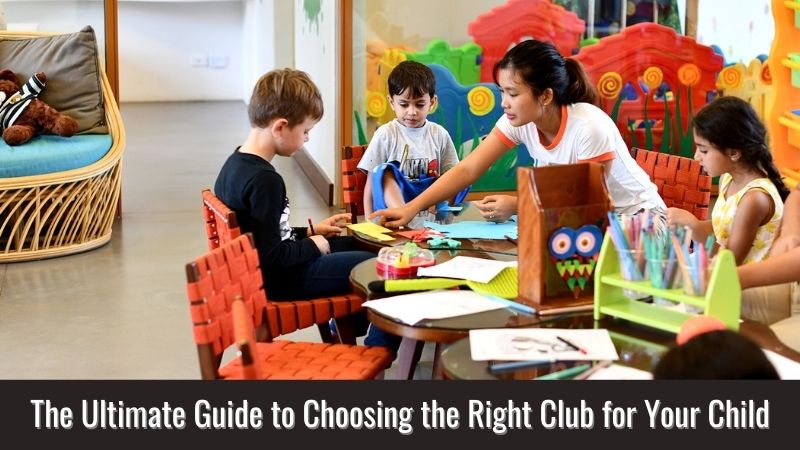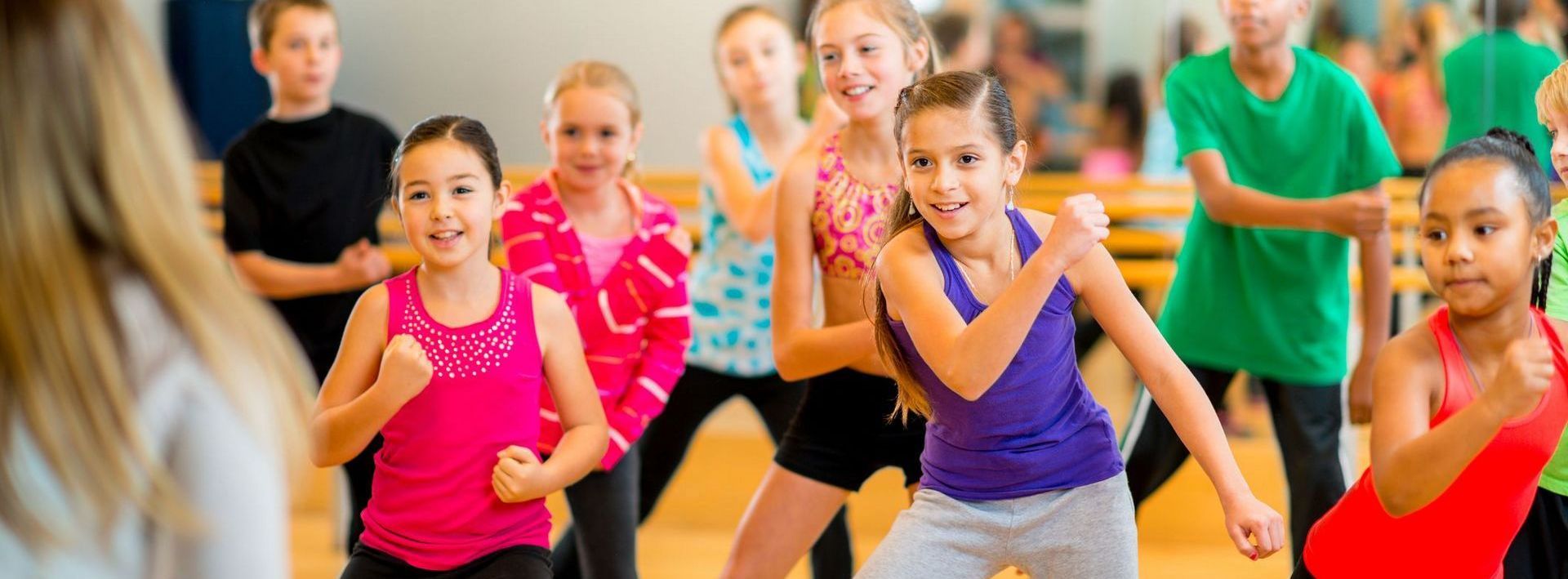The Ultimate Guide to Choosing the Right Club for Your Child

Parents always strive to give their children the best, to maximize their skills and abilities, both physical and intellectual. The variety of clubs and sections for children provides ample opportunities for this. At the same time, it is impossible to develop everything, so you have to choose those activities that will bring the greatest benefit.
How to choose the right club for your child
When choosing one or another additional activity for a child, it is necessary to evaluate many parameters + the wishes of the parents, which should also be taken into account.
The desire of the child
Many children say that they would like to attend this or that club and it is worth encouraging such an aspiration. Even if the child tries and does not like it, there will definitely be no harm. But you will be sure that you have not overlooked the natural talent in this area.
Child’s abilities
When assessing the baby’s tendency to certain types of activity, of course, it is necessary to develop talent, but it is also worth paying attention to the fact that the baby does not succeed at all. This is especially true for preschoolers. The harmonious development of a little person is one of the tasks of parents.
Load
You should not send your child to all clubs at once. But the load should also be understood as the requirements for the child when attending certain classes. There are sections focused on “nurturing champions” and sections with more lenient requirements. It is better to start with the latter and only increase the load and requirements if the child has a desire to develop in this direction.
Health comes first
When choosing any sports section, be sure to visit a therapist and consult about possible contraindications.
Cost
While the child has not yet decided that he or she wants to do something specific, it makes no sense to spend fabulous sums for attending a club. You’d better first find moderately paid classes in a children’s art home, school or kindergarten.
Many children’s clubs are quite expensive. According to a recent survey, 47% of parents spend over $1,000 annually on their kids’ activities; 29% spend over $2,000. Moreover, after-school sports and club costs rise 7% this year. So it may be problematic for some parents to find money to pay for children’s after-school activities. According to statistics, many Americans even take 1000 dollar payday loans to send their child to the best section or club. Such a decision may be justified in some cases. Payday loans are short-term, which means you can repay them easily when you get your next paycheck. The process is quick and relatively easy. Many lenders who offer cash advances are available 24/7 and even have online applications. There are no strict requirements and no credit check needed. However, you must be sure that you will be able to repay your debt on time since defaulting on a loan can hurt your credit and incur large penalties.
Convenience
If visiting even a very good club involves getting to class within an hour, or even two, it is better to refuse it, especially if the child is still a preschooler.
Teacher’s qualifications
The child’s first visits to classes should be with their parents, and if the child is very shy, it is even possible to attend classes together until the baby gets used to the new environment. This way you will be able to evaluate the teacher’s approach to the educational process, the atmosphere in which the child will study. If the head of the club refuses to do this, this is a reason to think and doubt his/her professional qualities.
Age composition
It is undesirable for children with an age difference of more than two years to study in one group. Firstly, the requirements for children will be different, and secondly, there is a high probability of pressure from older comrades on younger ones.
The choice of the club depending on the child’s personality
In children, there are different types of temperament traits. A shy melancholic and a mobile choleric can grow up in the same family. It is necessary to approach the choice of additional activities based on the baby’s character.
Shy kids
When choosing a club or section for such a child, it is important to pay attention to what the baby is good at. After all, one of the requirements when choosing a section in this case will be to increase the baby’s self-esteem.
Sports sections oriented towards teamwork – hockey, football, water polo are also suitable for a shy child. Team games will develop exactly the skills that the child lacks – communication skills, the ability to work in a team.
It is likely that after a while you will hear the phrase “I don’t want to go to the section anymore”. But you shouldn’t quit the section right away. Find out what exactly is the reason for this decision. Very often the very first failure becomes a tragedy for shy children and encourages them to abandon even an activity that the child likes.
Overcoming difficulties together with the child will not only allow you to continue to do something important and interesting for the baby, but will also increase his/her self-confidence and abilities.
Active children
At first glance, any club and section is suitable for an active, sociable and mobile child. Often such children are happy to attend all or almost all that parents offer. The main thing when choosing developmental circles and sections for such a kid is the correct selection of activities and a combination of physical and intellectual activity.
Often parents of hyperactive children believe that the child, first of all, needs to “let off steam” and choose exclusively sports clubs. This is not entirely true. The hyperactivity of children, according to doctors, does not result from an excess of energy, but from the rapid depletion of the nervous system. Excessive physical activity can even harm.
An active child is better suited to a combination of a sports section, which will reveal his/her capabilities and talents with “quiet sports” such as checkers or chess, as well as with activities that require a certain concentration – design, modeling, drawing. This will smooth out negative manifestations in the form of increased excitability and also develop attention and the ability to concentrate.
“Not sporty” children
Some parents say: “My child is not sporty at all.” Indeed, there are children who do not like and do not want to play sports, but prefer quiet and calm activities. Should you insist on visiting sports clubs in this case? Oddly enough, yes.
It is better to choose sports aimed at general physical development – aerobics, swimming, rock climbing, even dancing. When choosing a section for such a kid, it is important that the lesson itself seems interesting to him/her, this will allow the kid to develop exactly those skills that he/she lacks.
At what age can your child go to a club?
It is not worth offering the child new activities until the second grade. When the educational process becomes familiar, you will be able to estimate how much time your child needs to rest from classes and prepare homework.
At the age of over 6 years, the circle of possible clubs and sections that can be offered to the child is expanding. It is already safe to offer all types of team sports:
- football;
- hockey;
- basketball;
- volleyball.
At this age, you can already choose sports activities of a narrower focus, for example, artistic or rhythmic gymnastics, synchronized, underwater or speed swimming, as well as more aggressive types of martial arts – karate, taekwondo.
It is recommended to use strength sports after the age of 10 – until this age, the baby’s body is still poorly adapted to excessive loads.
Schoolchildren can also be offered activities that require perseverance and attention:
- robotics;
- modeling;
- basics of programming;
- chess;
- classes aimed at developing specialized skills.
Any additional activity should harmoniously complement the baby’s usual daily routine. He or she must definitely have free time for games and rest. In this case, your child will not be overloaded and show his/her abilities in a new type of activity as much as possible.
Category: General
Tags: children, children's clubs, parents, physical activities

